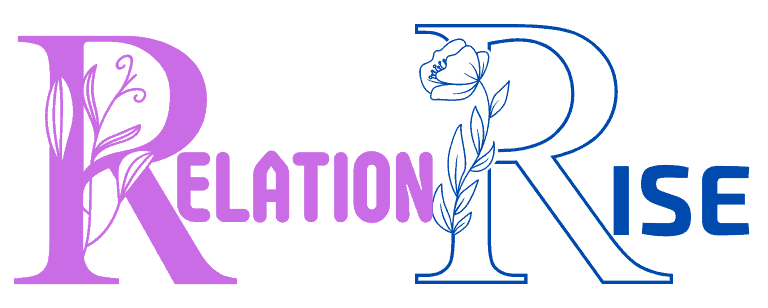Appropriate Vs Inappropriate Distances Relationships
Appropriate distances in relationships refer to healthy boundaries, respect, and mutual understanding, while inappropriate distances may result in emotional suffocation or detachment. Establishing the right distance in relationships is crucial for maintaining personal autonomy and fostering a sense of intimacy.
Finding the balance between being connected and having individual space is an ongoing process that requires open communication and mutual respect. It’s essential to acknowledge individual needs and emotions while also considering the dynamics of the relationship as a whole.
In the following content, we will explore the importance of appropriate distances in relationships, the impact of inappropriate distances, and effective strategies for maintaining healthy boundaries. Understanding the significance of establishing and respecting appropriate distances in relationships is an important aspect of fostering healthy and fulfilling connections.

Understanding Distances In Relationships
When it comes to relationships, understanding the appropriate distance between individuals is crucial for maintaining a healthy and balanced connection. Whether it’s with a romantic partner, family member, friend, or colleague, navigating the intricacies of personal space and boundaries is essential for fostering meaningful and respectful interactions. By delving into the importance of personal space and delineating the concept of appropriate distance, individuals can establish healthier and more fulfilling relationships.
Importance Of Personal Space
In any type of relationship, the concept of personal space factors significantly into the dynamics of interaction. Personal space refers to the physical and emotional distance individuals need to feel comfortable and secure. It encompasses the need for solitude, privacy, and autonomy, allowing individuals to recharge, reflect, and maintain a sense of individual identity within the context of the relationship.
Respecting personal space not only demonstrates consideration and empathy but also contributes to building trust and intimacy. By honoring each other’s need for personal space, partners, family members, or friends can nurture a sense of mutual respect and understanding within the relationship.
Defining Appropriate Distance
The notion of appropriate distance in relationships involves striking a delicate balance between closeness and autonomy. Appropriate distance implies a healthy level of emotional and physical proximity that feels comfortable and aligned with the needs and comfort levels of both individuals involved.
- It entails recognizing and honoring each other’s boundaries, whether they are physical, emotional, or psychological.
- This includes being mindful of cues and signals that indicate when more distance or space is required.
- Appropriate distance also involves open and honest communication to address any disparities in comfort levels within the relationship.
Establishing and maintaining appropriate distance fosters a harmonious balance between togetherness and independence, ultimately contributing to the sustainability and fulfillment of the relationship.
Factors Influencing Appropriate Distances
Understanding the factors that determine appropriate interpersonal distances is crucial for healthy relationships. Factors such as comfort level, cultural background, and personal boundaries play a significant role in determining the distance that is considered appropriate in various social contexts. It’s essential to be mindful of these factors to ensure mutual respect and understanding in relationships.
Factors Influencing Appropriate Distances In a healthy relationship, understanding the appropriate distance is crucial. It involves respecting each other’s boundaries while maintaining open communication. Several factors influence the appropriate distance in a relationship, such as communication styles and respect for boundaries.Communication Styles
Effective communication is vital in determining the appropriate distance in a relationship. Clear and honest communication fosters understanding and emotional intimacy between partners. Individuals who have open and direct communication styles may be comfortable with a closer physical and emotional distance, while those with reserved communication styles may require more personal space and solitude. Being aware of each other’s communication preferences can help partners navigate the appropriate distance in their relationship.Respect For Boundaries
Respecting boundaries is a cornerstone of a healthy relationship. Respecting each other’s personal space, physical boundaries, and emotional needs is essential in establishing the appropriate distance. Partners need to recognize and uphold these boundaries to ensure that both parties feel comfortable and valued. Communicating and setting clear boundaries can help maintain a healthy and respectful distance in the relationship. Understanding these factors is vital for fostering a healthy and fulfilling relationship. By acknowledging communication styles and respecting boundaries, partners can navigate the appropriate distance in their relationship, promoting understanding, respect, and emotional intimacy.Signs Of Inappropriate Distances
Red Flags In Personal Space Invasion
One of the key indicators of inappropriate distance in a relationship is a consistent invasion of personal space without consent. This intrusion can manifest in various ways, such as unwarranted physical closeness, continuous touching without permission, or pressuring for physical intimacy despite expressed discomfort.
Lack Of Respect For Privacy
Another significant sign of inappropriate distance is a lack of respect for privacy. This can take the form of snooping through personal belongings, accessing private information without authorization, or consistently disregarding the need for personal space and alone time.
Impact On Relationships
Appropriate vs. inappropriate distances in relationships can significantly impact the dynamics and well-being of those involved. It is essential for individuals in relationships to recognize and establish healthy emotional boundaries in order to maintain trust and intimacy in their interactions. The impact of such boundaries is paramount in sustaining a healthy and fulfilling relationship over time.
Emotional Boundaries And Well-being
Establishing emotional boundaries is crucial in maintaining a sense of self and individual identity within a relationship. When boundaries are respected, individuals are better able to communicate their needs and desires, leading to improved emotional well-being. However, when boundaries are not clearly defined or consistently violated, it can lead to feelings of insecurity and emotional distress.
Trust And Intimacy Issues
Healthy emotional boundaries foster trust and intimacy in relationships. When individuals feel secure in expressing their feelings and needs without fear of judgment or rejection, trust is built and intimacy thrives. Conversely, breaches of emotional boundaries can lead to feelings of insecurity and a lack of intimacy, impacting the overall quality of the relationship.
Strategies For Maintaining Appropriate Distances
When it comes to maintaining healthy and appropriate distances in relationships, it’s crucial to employ effective strategies that foster mutual respect and understanding. By learning to navigate the delicate balance of closeness and space, individuals can cultivate strong, meaningful connections while upholding personal boundaries. Let’s delve into some essential strategies for maintaining appropriate distances in relationships.
Effective Communication
Effective communication is the cornerstone of any successful relationship. It’s vital to express thoughts, feelings, and concerns openly and honestly, while also listening attentively to the other person. By fostering open dialogue, misunderstandings and conflicts can be effectively managed, nurturing a healthy emotional bond that respects individual autonomy.
Setting Boundaries
Respectfully setting boundaries is essential for maintaining appropriate distances in relationships. Boundaries help to define the acceptable level of closeness and ensure that each individual’s needs and limitations are honored. It’s important to communicate boundaries respectfully and assertively, making it clear how personal space and privacy contribute to a healthy dynamic.
Frequently Asked Questions Of Appropriate Vs Inappropriate Distances Relationships
What Defines An Appropriate Distance Relationship?
An appropriate distance relationship is one where both partners maintain individual identities while fostering a strong emotional connection.
How Can Inappropriate Distances Affect A Relationship?
Inappropriate distances can lead to feelings of loneliness, lack of communication, and a decrease in emotional connection within the relationship.
What Are The Signs Of A Healthy Long-distance Relationship?
Trust, effective communication, shared goals, and regular visits are signs of a healthy long-distance relationship.
What Actions Can Help Strengthen A Long-distance Relationship?
Regular communication, planning visits, sharing experiences, and being supportive can strengthen a long-distance relationship.
What Are The Challenges Of Maintaining A Long-distance Relationship?
Challenges include time zone differences, communication barriers, loneliness, and the lack of physical intimacy.
How Important Is It To Set Boundaries In A Long-distance Relationship?
Setting boundaries is crucial for maintaining trust, respect, and understanding in a long-distance relationship. It helps manage expectations and foster a healthier connection.
Conclusion
Ultimately, the appropriateness of a distance relationship depends on individual needs and circumstances. It’s essential to prioritize open communication, trust, and understanding. While distance can pose challenges, it can also strengthen a relationship by cultivating patience and resilience. Embracing the right mindset and utilizing effective communication tools can help navigate the complexities of long-distance relationships.






